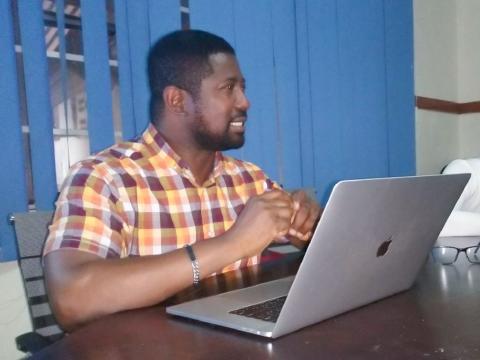By Nasratu Kargbo
The Institute for Governance Reform (IGR) has noted in a report, the effects of the COVID pandemic on Sierra Leone’s judiciary, like many other institutions in the country.
It says many cases were delayed when courts were closed, as part of the coronavirus prevention measures and that prisoners remained incarcerated on remand, court cases suspended and prisons restricted visitation and prison activities stalled.
It quoted a public notice from the judiciary which states that “All other civil or criminal cases in magistrate courts are likewise postponed for a month effective 28 April 2020. The police are ready to give police bail as far as possible for new offenders and to hold serious offenders without bail where necessary.” it reads, citing the action by the Chief Justice, on 28 April 2020, in announcing a raft of COVID-19 preventative and control measures to cease all court activities in the Magistrates Courts nationwide for a period of one month.
Just like other infectious diseases, COVID-19 poses a higher risk to populations that live in close proximity to each other. This risk is particularly acute in places of detention, such as prisons, residential institutions for people with disabilities and nursing facilities for older people, all places where the virus can spread rapidly, especially if access to health care was already poor.
So many challenges were faced as the pandemic laid bare the inherent challenges associated with maintaining public health behind bars, where social distancing is almost impossible.
Detainees, their custodians, their families, case workers, and criminal justice service providers in and outside the courtroom or jail cell were all posed with risks.
Apart from the negative effect it has on the judiciary, the report states that since the State of Emergency was declared, there have been broad instances of human rights violations such as restricting freedom of movement, and lack of protection from abuse among others.
It explains that even though the preventive measures were for emergency situations which demand certain extraordinary measures to protect the public, however, “restrictions on rights must be narrowly construed so as not to unduly impede the fundamental human rights outlined by numerous declarations, charters and conventions,” adding that the abuse on human right by authorities such as the security forces, police and NaCOVERC was prevalent.
The report went on to note that COVID-19 also has serious implication on the livelihood of Sierra Leoneans especially during lockdowns.
Enforcement of curfews and lockdowns were said to be sometimes harshly imposed. It states that the police brutality was also evident due to residents the fact the people have to go in search of water during lockdown.
The organization therefore recommended amongst others that the judiciary should resort to non-custodial sanctions and release of selected categories of prisoners as necessary.
It says that reducing the numbers in pre-trial detention, those detained for minor or political offences, near the end of their sentences, or detained unlawfully should be expedited and that those who cannot be released must have adequate health care.
The research funded by Irish Aid was conducted in partnership with IGR and the Center for Accountability and the Rule of Law (CARL).
Copyright © 2021 Politico Online (29/07/21)








